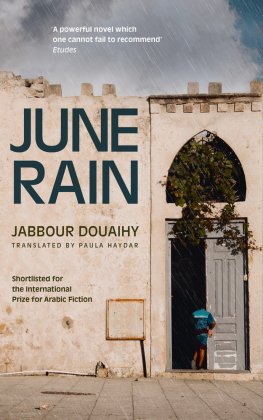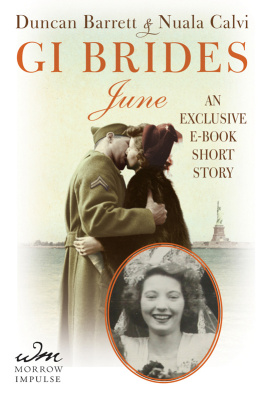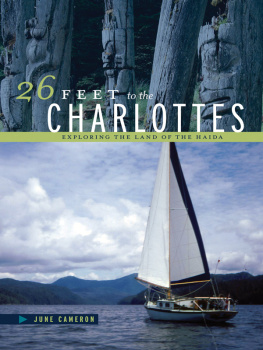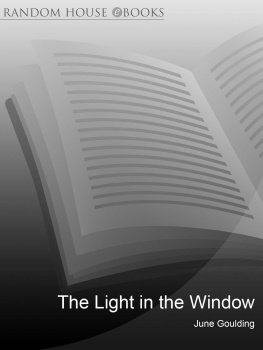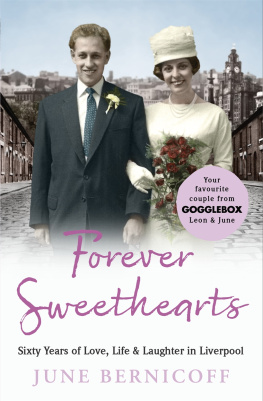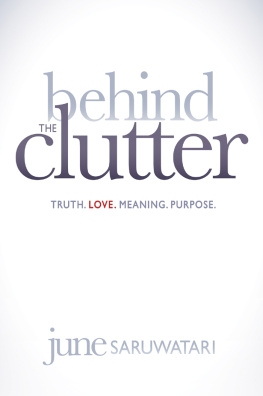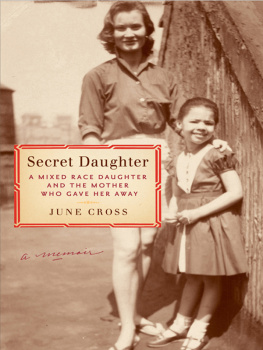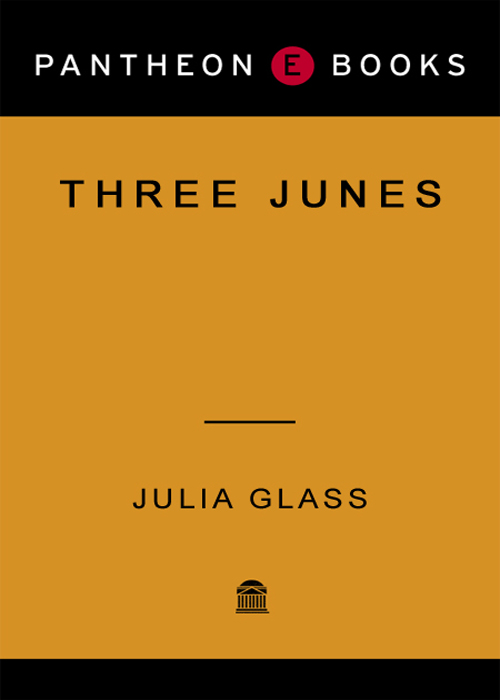
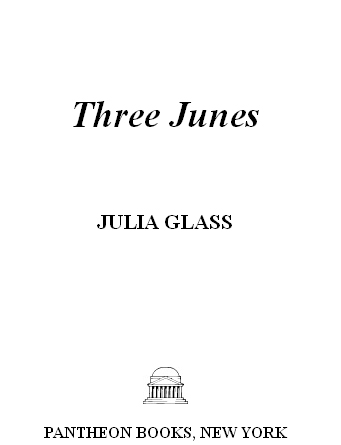
Contents
For Alec and Oliver, my extraordinary sons
Assuming that our energies are sufficient, love is interminable.
JIM HARRISON, The Road Home
Three Junes

Collies
1989
ONE
PAUL CHOSE GREECE for its predictable whiteness: the blanching heat by day, the rush of stars at night, the glint of the lime-washed houses crowding its coast. Blinding, searing, somnolent, fossilized Greece.
Joining a tourthat was the gamble, because Paul is not a gregarious sort. He dreads fund-raisers and drinks parties, all occasions at which he must give an account of himself to people he will never see again. Yet there are advantages to the company of strangers. You can tell them whatever you please: no lies perhaps, but no affecting truths. Paul does not fabricate well (though once, foolishly, he believed that he could), and the single truth hes offered these random companionsthat recently he lost his wifebrought down a flurry of theatrical condolence. (A hand on his at the breakfast table in Athens, the very first day: Time, time, and more time. Let Monsignor Time do his tedious, devious work. Marjorie, a breathy schoolmistress from Devon.)
Not counting Jack, they are ten. Paul is one of three men; the other two, Ray and Solly, are appended to wives. And then, besides Marjorie, there are two pairs of women traveling together, in their seventies at least: a surprisingly spry quartet who carry oversize binoculars with which they ogle everything and everyone, at appallingly close range. Seeing the sights, they wear identical, brand-new hiking boots; to the groups communal dinners, cork-soled sandals with white crocheted tops. Paul thinks of them as the quadruplets.
In the beginning, there was an all-around well-mannered effort to mingle, but then, sure as sedimentation, the two married couples fell together and the quadruplets reverted more or less to themselves. Only Marjorie, trained by profession to dole out affection equally, continues to treat everyone like a new friend, and with her as their muse, the women coddle Paul like an infant. His room always has the best view, his seat on the boat is always in shade; the women always insist. The husbands treat him as though he were vaguely leprous. Jack finds the whole thing amusing: Delightful, watching you cringe. Jack is their guide: young and irreverent, thank God. Reverence would send Paul over the edge.
Even this far from home there are reminders, like camera flashes or shooting pains. On the streets, in the plazas, on the open-decked ferries, he is constantly sighting Maureen: any tall lively blonde, any sunstruck girl with a touch of the brazen. German or Swedish or Dutch, there she is, again and again. Today she happens to be an American, one of two girls at a nearby table. Jack has noticed them too, Paul can tell, though both men pretend to read their shared paperday before yesterdays Times. By no means beautiful, this girl, but she has a garish spirit, a laugh she makes no effort to stifle. She wears an eccentrically wide-brimmed hat, tied under her chin with a feathery scarf. (Miss Forties Nostalgic, Maureen would have pegged her. These gals think they missed some grand swinging party.) Little good the hat seems to have done her, though: she is sunburnt geranium pink, her arms crazed with freckles. The second girl is the beauty, with perfect pale skin and thick cocoa-colored hair; Jack will have an eye on that one.
The girls talk too loudly, but Paul enjoys listening. In their midtwenties, he guesses, ten years younger than his sons. Heaven. I am telling you exquisite, says the dark-haired girl in a husky, all-knowing voice. A sensual sort of coup de foudre.
You go up on donkeys? Where? the blonde answers eagerly.
This dishy farmer rents them. He looks like Giancarlo Giannini. Those soulful sad-dog eyes alone are worth the price of admission. He rides alongside and whacks them with a stick when they get ornery.
Whacks them?
Oh just prods them a little, for Gods sake. Nothing inhumane. ListenIm sure the ones that hump olives all day really get whacked. By donkey standards, these guys live like royalty. She rattles through a large canvas satchel and pulls out a map, which she opens across the table. The girls lean together.
Valley of the Butterflies! The blonde points.
Jack snorts quietly from behind his section of the Times. Dont tell the dears, but its moths.
Paul folds his section and lays it on the table. He is the owner and publisher of the Yeoman, the Dumfries-Galloway paper. When he left, he promised to call in every other day. He has called once in ten and felt grateful not to be needed. Paging through the news from afar, he finds himself tired of it all. Tired of Maggie Thatcher, her hedgehog eyes, her vacuous hair, her cotton-mouthed edicts on jobs, on taxes, on terrorist acts. Tired of bickering over the Chunnel, over untapped oil off the Isle of Mull. Tired of rainy foggy pewtered skies. Here, too, there are clouds, but they are inconsequential, each one benign as a bridal veil. And wind, but the wind is warm, making a cheerful fuss of the awning over the tables, carrying loose napkins like birds to the edge of the harbor, slapping waves hard against the hulls of fishing boats.
Paul closes his eyes and sips his ice coffee, a new pleasure. He hasnt caught the name for it yet; Jack, who is fluent, orders it for him. Greek is elusive, maddening. In ten days, Paul can say three words. He can say yes, the thoroughly counterintuitive neh. He can wish passersby in the eveningas everyone here does himkalespera. And he can stumble over if you please, something like paricolo (ought to be a musical term, he decides, meaning joyfully, but with caution). Greek seems to Paul, more than French or Italian, the language of love: watery, reflective, steeped in thespian whispers. A language of words without barbs, without corners.
When he opens his eyes, he is shocked to see her staring at him. She smiles at his alarm. You dont mind, I hope.
Mind? He blushes, but then sees that she is holding a pencil in one hand and, with the other, bracing a large book on the edge of her table. Her beautiful companion is gone.
Paul straightens his spine, aware how crumpled and slouched he must look.
Oh no. Down the way you were. Please.
Sorry. How was I? Paul laughs. A little more like this? He sinks in the chair and crosses his arms.
Thats it. She resumes her drawing. Youre Scottish, am I right?
Well thank God she hasnt mistook us for a pair of Huns, says Jack.
Not you. Youre English. But you, she says to Paul. I can tell, the way you said little, the particular way your ts disappeared. Im wild about Scotland. Last year I went to the festival. I biked around one of the lochs.... Also, I shouldnt say this, youll think Im so typically rudely American, but you look, you know, like you marched right out of that Dewars ad. The one, you know, with the collies?
Collies? Paul sits up again.
Oh, sorryMadison Avenue nonsense. They show this shepherd, I mean a modern one, very tweedy, rugged, kind of motley but dashing, on the moors with his Border collies. Probably a studio setup out in L.A. But I like to think its real. The shepherd. The heather. The red phone boothcall box, right?...
Next page

